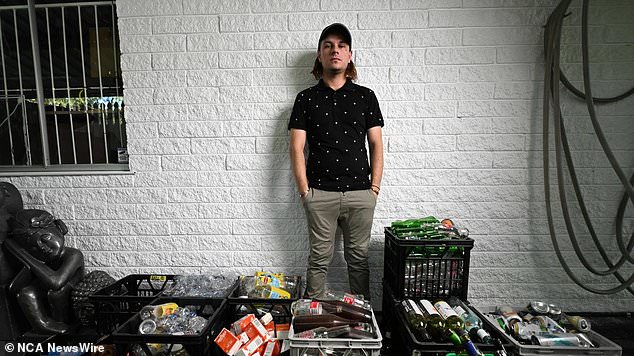
A young man has revealed the desperate actions he has been forced to take to make ends meet as the Queensland government proposes drastic measures to stem the growing housing crisis.
Forced out of the rental market by rising costs, Brisbane man Brock Alexander is living with his parents and helping them cover their own mortgage.
The 24-year-old pays them $150 a week from his Jobseeker support payment to cover his rent.
The scenario is a catch-22 – he can’t afford to move out due to the increasing rents, and if he did, his parents could risk losing their home without his contributions.

North Brisbane man Brock Alexander, 24, is living with his parents and helping them cover their own mortgage as he can’t afford to rent on his own




Mr Alexander pays his parents $150 a week from his Jobseeker support payment to cover his rent
‘I’m between a rock and a hard place currently,’ he told NCA NewsWire.
Mr Alexander’s experience comes to light as a new report prepared by Queensland’s peak body for the community services sector exposes the depth of the housing crisis gripping the sunshine state.
The report, titled ‘A blueprint to tackle Queensland’s housing crisis’, found the number of private tenancies being let at affordable rents to low-income earners had halved from 26 per cent to just 13 per cent since 2017-18.
About 150,000 Queensland households have unmet housing needs – meaning they are either homeless or low-income recipients living in private rental housing while paying more than 30 per cent of the household income in rent.
It also found the proportion of affordable lettings across the Greater Brisbane area fell from 19 per cent to 10 per cent.
Queensland Council of Social Service (QCOSS) commissioned the report with the support of the Town of Nowhere campaign, Tenants Queensland and The Services Union.
Mr Alexander, who receives a weekly Jobseeker payment, said properties approved under the National Rental Affordability Scheme (NRAS) were still out of his price range.
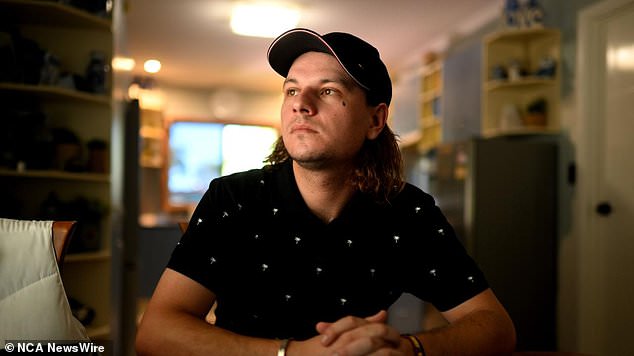





Mr Alexander said he doesn’t drive because he cannot afford to register his car
‘The very cheapest rentals are so far out of the way you’d need a car to get anywhere,’ he said.
‘I’ve got a car but I can’t drive it anywhere because I can’t afford to get it registered.’
The Queensland Labor government has floated plans to try and contain the growing rental and housing crisis, including introducing a rental cap.
Premier Annastacia Palaszczuk earlier this week said she was ‘very seriously’ looking at how such a policy could be put in place.
‘I understand that this is a big issue for families, they are constantly being faced with huge increases in rent,’ she said.
But the move has sparked outrage from the property sector, with Property Council Queensland’s executive director Jen Williams explaining it was the ‘last thing’ the state needed.
She said a rental cap would add further barriers amid a lack of supply of across all housing types.
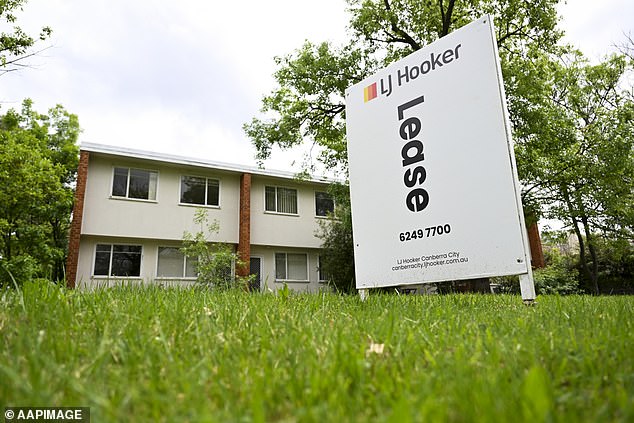





A QLD report found the proportion of affordable lettings across the Greater Brisbane area fell from 19 per cent to 10 per cent (stock image)
‘Additional barriers to entry – whether that be through reform such as the introduction of rental caps, new taxes, changing regulations or requirements for the private sector to deliver social housing – all serve to reduce the overall supply of housing, as it becomes harder and more expensive to invest,’ Ms Williams said.
‘It would be a shame for this progress to be unwound through the introduction of an ill-considered policy that has far-reaching consequences.’
Mr Alexander’s housing woes were compounded with the paltry amount he received in income support – something that forced him and his family to take desperate measures just to keep their expenses low.
Part of this included delaying his wisdom teeth surgery – which could cost over $3000 – and going without vaccinations recommended by his doctor because they are not covered by the Pharmaceutical Benefit Scheme (PBS).
‘Our recent water bill was more than 20 per cent higher than the previous quarter – we’re now drinking our tank water to save on water usage,’ he said.
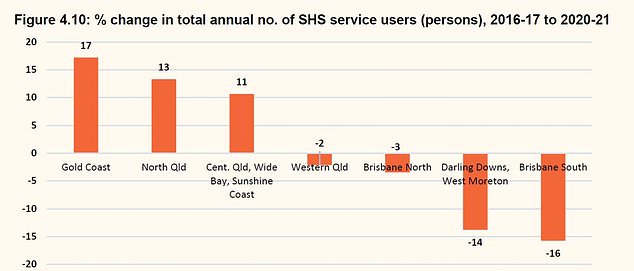





Graphics from QCOSS’ report on Queensland’s housing crisis showing the number of Specialist Homelessness Services users
‘I’ve started collecting up to 30 recyclable bottles and cans from shopping centre bins every night to take to the container deposit stations to redeem the returns, which brings in up to $20 a week extra.
‘Last year we ran out of food and the Salvation Army gave me $100 gift card that I could only use to pick up food from their distribution centre on a Friday in three days’ time, but we were hungry on Tuesday.
‘I found a place which offers food that’s still edible, but has expired use-by dates.’
While Mr Alexander had recently been approved for a job, he revealed he had to turn it down because they asked him to start the next day.
At the time, he couldn’t even afford a train ticket to get there, nor the proper work boots for the task.
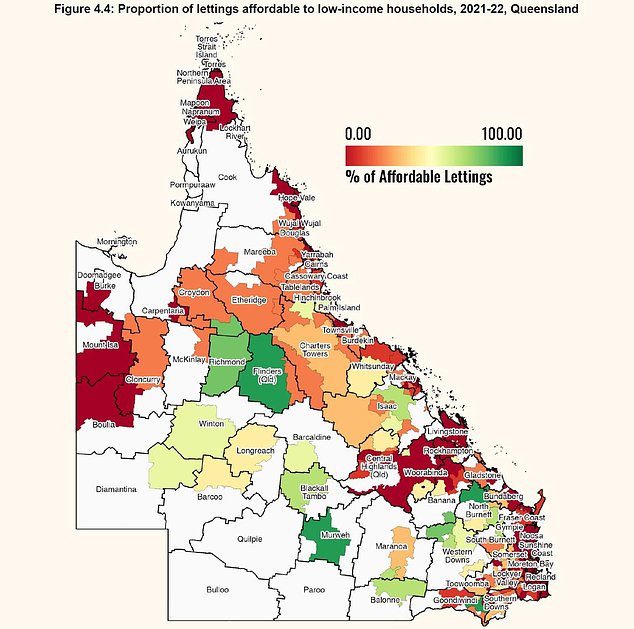





Graphics from QCOSS’ report on Queensland’s housing crisis showing affordable rentals
Asked what could be done to make it easier for people to enter the renting and housing market, Mr Alexander said a rise in rental assistance and extending the NRAS scheme past 2025 would help ease stress.
He also advocated for a financial rise in line with a proposal by the Australian Council of Social Services (ACOSS), especially for Jobseeker and Austudy.
‘That’s what would help me right now in my situation that many are in and shouldn’t be,’ he said.
QCOSS’ report said a recent burst of rent inflation had led to private rents in Queensland growing faster than any other Australian jurisdiction.
Brisbane house and apartment rents jumped by 33 and 23 per cent respectively in the two and a half years since the Covid-19 outbreak.
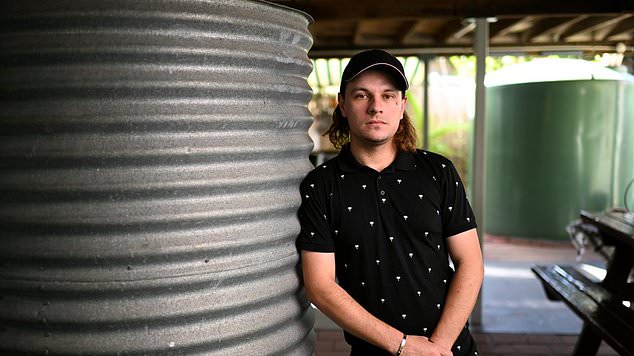





Mr Alexander has called for an increase to rental assistance and an extension of the NRAS scheme past 2025
‘Notably diverse patterns of change are evident across the cohort of people experiencing homelessness or at risk of homelessness,’ the report states.
Housing advocacy groups are calling on the Queensland government to introduce tough rental laws in hopes of limiting the price increases on rental housing. This comes as rental prices in Brisbane have risen almost 25 per cent in 12 months to February.
‘It is not only that the problem has been expanding fastest in certain localities, but that certain subgroups have been growing much more quickly than others.’
QCOSS chief Amy McVeigh said the report was a wake-up call on the scale of the state’s housing crisis.
‘The fact that we have 150,000 households with unmet housing needs means about 300,000 Queenslanders are either homeless, or are on low incomes and are paying more than 30 per cent in rent,’ Ms McVeigh said.
‘That is staggering. That’s 300,000 Queenslanders – a ‘Town of Nowhere’ with a population almost double the city of Cairns.’
She said the ‘deep-rooted problems’ needed a response from both levels of government, including a ‘long hard look’ at the underperforming housing system.
Last year, a landmark housing summit was hosted by the Queensland government in response to crippling housing issues and shock rental stories.
The government announced the Housing Investment Fund (HIF) would be boosted to $2 billion – supporting a new target of 5600 social and affordable home commencements by June 2027.
A separate report by Australian Council of Social Service (ACOSS) and University of NSW exposed disturbing statistics on Australia’s poverty issues, revealing one in eight people was living in poverty.
Source: | This article originally belongs to Dailymail.co.uk

